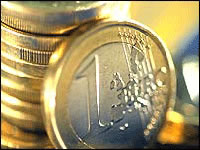Corruption is costing the European economy tens of billions of euros every year, delegates at a three-day conference on graft in Vienna.
"Corruption is a socio-cultural phenomenon and a disease which erodes competitiveness, creates social injustice and poverty and fuels organised crime," said Martin Kreutner, an Austrian interior ministry official and president of the conference which gathers 120 experts from the 25 EU countries. "Corruption and fraud costs the EU economy tens of billions of euros every year," he added.
Peter Eigen, the president of the non-governmental group Transparency International, said: "Corruption is considered something normal in business circles in big EU member countries, where it perverts the economy." "This is why we try to bring big companies, notably those involved in large projects, to sign 'integrity pledges' which carries penalties in case graft is
detected," he added.
He urged governments to promote a code of ethics in the public service and to apply the law "without wavering" wherever corruption comes to light. Donatella della Porta, from the University Institute in Florence, said the "political culture of certain countries, weak controls and a doubtful morality combine to allow corruption to flourish." She said corruption has become more intricate and was practised by networks in the elite and the public administration.
"These connections, formed by politicians, high officials and business chiefs, and often crime bosses too, are the cornerstones of corruption. They allow people to cut corners on deals and undermine the power of the market," she said.
Raymond Hung-Chiu Wong, the director of the Independent Commission Against Corruption in Hong Kong, called for a campaign to "make corruption intolerable to the public". He said corrupt businessmen and officials had been arrested and tried in recent years, but the commission has also identified areas prone to corruption in the public service and developed an "integrity culture" with the help of the internet and the mass media.
Franck Anechiarico, a professor at Hamilton College in New York, said in the United States "performances measurements" in the public service had proved effective in fighting corruption at all levels.




 By: N. Peter Kramer
By: N. Peter Kramer
